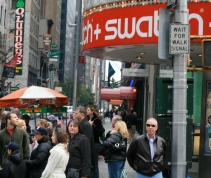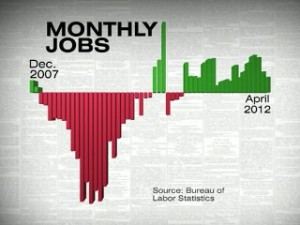When I was ten-years old, my mother invited a local icon, our widowed neighbor Miss Mary, to join us for Thanksgiving. My mother was delighted with and panicked by the accepted invitation.
The preparations began a week before Thanksgiving. My mother, cooking side dishes and desserts, declared the kitchen off limits. When the celebratory day arrived, the house was in perfect condition and, dressed in our best, so were my father, brother and I. After a glass of sherry, my father was dispatched to bring the turkey to the table. As he stepped through the swinging door that led to the kitchen he tripped and the turkey tumbled to the floor.
This was a major disaster. There was dead silence; then my mother said, “Don’t worry. Jack, pick up the turkey; we’ll serve the other bird.” My father placed the turkey on the platter and accompanied by my mother, retreated to the kitchen. In a few minutes, they reappeared with a beautifully plated turkey. As I opened my mouth to comment on this amazing occurrence, I caught a look on my mother’s face that persuaded me to keep quiet. Later I learned there had only been one turkey and it had been dusted off, placed on the platter and served.
My wife, Terri’s first Thanksgiving after moving to Florida was her first away from her family. Our family’s traditional menu never changed: turkey, green beans, sweet potatoes, rice, dressing and dessert. We ignored Terri’s request for mashed potatoes until she started to cry. My brother realized how homesick she was, rushed to the store, bought a bag of potatoes and assigned Terri the task of preparing them.
After she washed, peeled and boiled the potatoes, she placed them in a bowl, added a pound of butter, a cup of milk and asked where the electric mixer was stored. I explained that Southerners liked lumpy mashed potatoes, so we used a potato mashers. She responded that it wasn’t her problem that we didn’t know how to properly mash potatoes—she needed a mixer.
After brother produced the electric mixer, Terri turned it to high speed and plunged the beaters into the potatoes. There was an explosion of potatoes: on the walls, floor, even the ceiling—all over the kitchen. The only sound was Terri’s sobbing. Suddenly my brother started laughing; not just laughing but rolling on the floor, uncontrollable, howling. At that moment, Terri and my brother became close friends and we had something else to be thankful about.
Thanksgiving was my brother’s favorite holiday; one he loved to share. Before the holiday, he would canvass his friends to identify people who had no place to celebrate the big day. I can remember years when there were 40 or 50 people—a few of whom we never identified.
On Thanksgiving eve he would begin his preparations. He provided the turkey and two kinds of stuffing: cornbread, made from a store mix and an oyster dressing that caused more than one family dispute. His main contribution was the Thanksgiving punch.
After preparing his dressings and seasoning the turkey, joined by friends and family he would begin mixing the punch. The punch was cross between southern sweet tea and kickapoo joy juice. To insure perfection, it would be tasted, and tasted again. After midnight, those still standing, would declare the punch ready.
Thanksgiving morning the punch would be poured into a ceramic crock, the turkey placed in the oven and the guests would arrive hours before lunch. My brother loved singing. Before dinner was served, everyone held hands and with Kate Smith’s version blasting from the stereo, join in singing God Bless America followed by an a cappella Thank You For The World So Sweet, a prayer in a song.
In the mid-1980’s, Terri and I invited her sister, brother-in-law and their two children to join us for Thanksgiving. I told them that the temperature would be in the mid 70’s and be sure to bring shorts.
Thanksgiving morning the temperature was in the upper 30’s, with rain and a howling wind. Forty people had accepted the invitation for lunch; including Terri’s freezing family, who hadn’t packed so much as a sweater. We planned to serve lunch on the front porch and lawn. However, with the wind and rain that was out of the question, so we decided to move to the garage.
My brother, into the Thanksgiving punch, was no help, so it was up to me to find chairs. With the rental stores closed, I turned to our undertaker friend “Digger” Hiers. He had plenty of folding chairs and was glad to loan them to us but we had to pick them up. Until you have done it, you don’t know how many trips it takes in a four-door car to retrieve forty folding chairs. We celebrated that memorable Thanksgiving sitting on chairs marked “Hiers Funeral Home,” in a garage, with a storm howling outside.
Thanksgiving is set aside for us to reflect upon and give thanks for the blessings we have been freely given. My wish for all: a bountiful feast, a wonderful time with family and friends and time to consider how blessed we are. Happy Thanksgiving!
Thank You For The World So Sweet
Thank you for the world so sweet
Thank you for the food we eat
Thank you for the bird’s that sing
Thank you Lord for everything
 “Business would be easy if you didn’t have to deal with customers and employees.” A tired but true saying my father often muttered after coping with an unhappy customer.
“Business would be easy if you didn’t have to deal with customers and employees.” A tired but true saying my father often muttered after coping with an unhappy customer.

